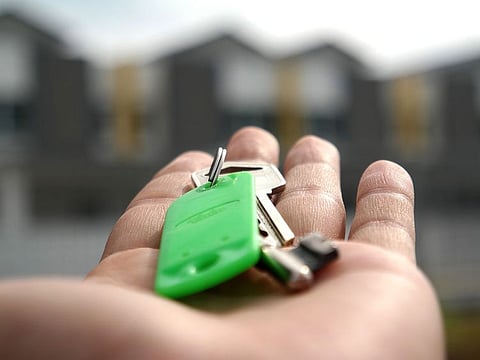Short-term rentals offer compelling option for Dubai’s property owners
More so in a marketplace overcrowded with new supply and falling yearly rents

Owning a home has always been a magnificent obsession… no one denies it. The dream home - that tangible evidence of success and the sense of ownership count.
But the pleasure often lies in the timing and ensuring that in the pursuit of that happiness, you do not dig yourself into a financial well. There are phases where renting property while saving, planning or investing for the future is given impetus because certain market conditions allow for this comfort zone.
However, as the global village shrinks further and travel intensifies, a city like Dubai calls for multiple choices in accommodation. The sentiment of a “home away from home” has begun to hold sway.
These factors work in tandem and provide strong compulsions to rent rather than buy. This short-term exercise is predicated on common sense and current trends. Dubai, as we notice, is facing reduced yearly rental demand, which allows for aspirational living at affordable cost.
Greater supply
In a buyers’ market when supply outweighs demand, this advantage again accrues to the tenant. In-depth studies also indicate that there will be further across-the-board supply by 2020, with some experts indicating a surge of as much as 300 per cent.
That means as many as 570,000 new units will enter the market by 2020 and 33,000 plus will be added this year. But even if it is a little less, this is the best time to put your vacant property on rent, and in turn add a little zest to your lifestyle.
For the next three years, the tenant holds the cards and can reasonably expect to be wooed by the market. Bearing this in mind, companies with long- and short-term vision and strategic planning are focusing on specific rental concepts with special emphasis on short-term leases.
Rather than opt for the a clinical hotel accommodation, visitors would much rather rent a “home” with all the amenities and live well. This usage of assets on a need-to basis is fiscally sound and encouraged, whether it is office space, a domestic environment, or even transportation. Going in for rental makes good sense.
Framework
Even the lessor earns higher revenue through shorter asset usage per transaction. The attraction to rentals is seen in the strong surge within the corporate sector, with the spike reaching a peak in the monthly rental of apartments and villas that are functional and fully-furnished.
The forward-thinking DTCM has generated incentives through its “Holiday Home” regulatory framework by providing protection for property owners and guests through defined standards. The easy registration process and stringent licencing regime of operators ensures that everyone is secure and comfortable that they are getting the deal they wanted.
The activation of multiple channels for processing offers like Airbnb and booking.com has also made things even easier. Those with an edge are companies with in-house knowledge of the hospitality industry, an awareness of local conditions, and the working of the system with the controls to ensure the best results.
These combined with a network of contacts and a strong customer base in which word-of-mouth plays a fair part allows such entities to grasp the lead.
Paul Mallee is co-founder and Managing director of Maison Privee.



